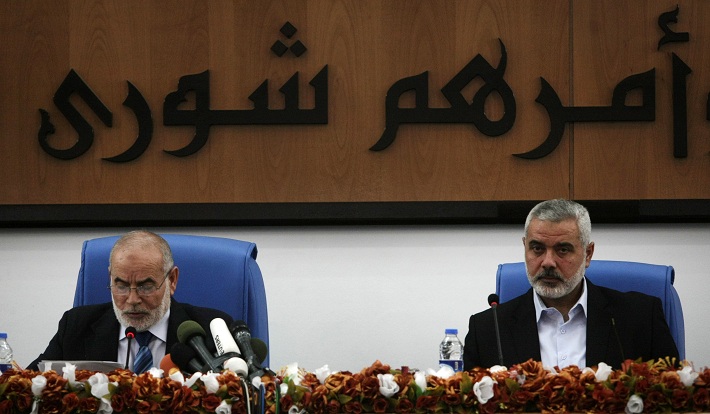CAIRO: The first session of Al-Dostour editor Ibrahim Eissa’s trial was held Wednesday at the New Cairo State Security Court. The prosecution presented its case during this first session, and the defense’s testimonies will be heard on Nov. 14.
The hearing commenced at 11 am with the testimony of the prosecution’s witnesses Atef Aly Ibrahim, first undersecretary of the Central Bank of Egypt, and General Ibrahim Yasser Al-Miligy, the police officer who investigated Eissa’s case in front of the general attorney’s office.
Eissa, however, was absent from the hearing, and told Daily News Egypt that he does not plan on attending the trial. He did not show up at any point during the three-and-a-half hour session.
When the prosecution demanded Eissa attend the hearings, the defense said President Mubarak should be asked to attend if Eissa is forced to come.
Al-Miligy was asked by the prosecution to explain why Eissa should be found guilty of “publishing false information about the president’s health and “spreading rumors that threatened foreign investments in Egypt and caused public panic.
According to Al-Miligy, Al-Dostour’s Aug. 28 issue featured an article about President Hosni Mubarak’s trip to France the following day to undergo a medical check up. This article, he said, caused public panic and raised concerns about the president’s health.
Al-Dostour newspaper “intentionally published this information a day earlier than the visit was scheduled to take place in order to scoop the story, said Al-Miligy.
On Aug. 30, Al-Miligy continued, the paper published another article indicating that the president is suffering from blood circulation problems. The article also implied that Mubarak’s weakened health does not enable him to make wise decisions regarding the country’s internal and external affairs, he added.
The article suggested that “Egypt’s decisions are being made by a sick president who can only afford to make emotional decisions due to his weak health, Al-Miligy said, repeating this sentence fervently several times throughout his testimony.
The defense lawyers interrupted the witness, saying that those two articles were published after Mubarak’s Aug. 23 visit to Borj Al-Arab factories, which discredited already existing rumors of his ill health. Therefore, the said articles did not start the rumors and should not be considered evidence.
Al-Miligy replied that rumors about the president’s health arose at the end of August because of the Al-Dostour articles and not at the beginning of the month. The argument was again rejected by the defense lawyers, who insisted that the rumor abounded at the beginning of August, long before the articles were published.
The two articles, said Al-Miligy, had grave effects on foreign investments and Egyptian citizens. Defense lawyers responded by asking if he can name one citizen who reported their psychological distress to the authorities. The prosecution’s objection to this question was sustained by the judges, and Al-Miligy did not answer.
The prosecution said this question was “unrealistic because the effects were “felt among many people and not one person who can be singled out.
After a half-hour recess, the session picked up with an argument between the two sides. On the one hand, the prosecution asked for a “psychological medical check up to be conducted on Egyptian citizens or at least a sample of them to assess the effects of the rumor. On the other hand, the defense questioned court house’s eligibility to examine the lawsuit
“Is the trial being conducted in a criminal court whose verdicts can be appealed or in front of a state security court whose verdicts cannot appealed, shouted Eissa’s lawyers, referring to the first hearing that took place this past October in Bolaq Criminal Court.
The defense lawyers requested that the president’s medical reports be presented to the court so they can put an end to the case. Finally, the defense wondered why Eissa is the only one being tried when five other editors face the same charges.
Unlike the Oct. 1 hearing, there was low attendance at this session by journalists and members of human rights’ organizations, which is probably because this courthouse is on the outskirts of Cairo. It can also be attributed to the fact that when asked, security officers guarding the courthouse denied that the trial was taking place.
Eissa is accused of publishing wrong information about the president’s health and spreading rumors that threatened foreign investments in Egypt and caused public panic. Eight other lawsuits filed by lawyers affiliated with the National Democratic Party (NDP) accuse Eissa of causing them emotional damage after publishing rumors about the president’s death.
